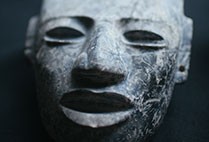NAACP Needs a New Mission?
For certain, the NAACP has a long way to go (“The NAACP Is Not Done,” Summer 2015). This article’s opening paragraph illustrates the depth of a two-sided street called prejudice in today’s American black and white cultures. On one side (which includes the news media and political leadership) is a tremendously oversensationalized, organized black response and reaction to incidents that inflame the presence of racism against the American black minority. The other side is an infuriating ignorance of people who continue to demonstrate prejudice in outward racist behavior within a small fraction of the American white majority. This Bostonia article has perpetuated these inflammatory racial issues, which are not represented with accurate and comprehensive accountability. The same, likewise, is true of the NAACP leadership. With these changing cultural times, an organization that represents the advancement of a people also needs to advance from its past and take on the challenges of present times. It’s high time for rebranding the NAACP.
National media questions to Brooks of how today’s NAACP relevancy would be described are right-on. It’s negative leadership to state that our nation has stepped backward in civil rights and voter rights and also add provocative matters of prejudicial mass incarceration, zero tolerance laws, biased voter ID requirements, and “pandemic” police misconduct when, instead, root causes aren’t being addressed. That should be perceived as a blatant step backward by the NAACP rather than advancement. I’d challenge Brooks, further, to contemplate what Martin Luther King, Jr. (GRS’55, Hon.’59) would answer. The 2015 American black-white cultural issues are far from those of a century ago.
What are the reasons for this tumultuous cultural divide today? Perhaps, the answer should be what the NAACP’s present-day mission is. Today’s NAACP challenge is to address a different mission than those confronting all its past leaders, indeed, to make today’s NAACP’s mission relevant. What are the causes of the high percent of juvenile arrest, youth detention, judicial juvenile court waivers, and state prison admittance that the NAACP can begin to resolve, rather than approach them as prejudicial or as cultural victimization? These are not century-old patterns of prejudice.
Bill Daviero (SED’73)
Cape Elizabeth, Maine
A Tribute to Betty Zisk
Thank you for a thoughtful memorial to Professor Betty Zisk (“An Activist and a Trailblazer,” Summer 2015). I was saddened to hear of her passing last October, and surprised to see myself sitting next to her in the photo of one of her graduate seminars. The photo and my experience with Professor Zisk reinforce her reputation for inclusion: I was an undergrad at the time, and she invited me to take a graduate level course on interest group theory. It was a highlight of my academic career; she encouraged a socially and intellectually immature kid from Dorchester to think big. I can only imagine the impact she had on hundreds of other students. The story, and my memories of Betty, encouraged me today to make a sizable (for me) donation to the scholarship fund that got me to BU in the first place.
John Bluthardt (CAS’85)
Jamaica Plain, Mass.
Picking Up the Tab for Technology
The article “Who Picks Up the Tab for Science?” (Summer 2015) mentioned a project, initially sponsored by the US Army, that was undertaken by the BU Optical Laboratory. That project resulted in the development of the largest aerial camera ever built. Named the “Boston Camera,” it was flown aboard an RB-36D and could detect a golf ball from 45,000 feet. The camera today sits under a wing of a B-36 on display at the National Museum of the United States Air Force in Dayton, Ohio.
Neil McManus (ENG’59)
Dayton, Ohio
Remembering Scott Whiting Austin
Scott Whiting Austin (Faculty Obituaries, Summer 2015) was a very popular and inspiring professor at BU. I never took one of his courses; regretfully, I had never gotten around to it because I was an English major, and most of my schedule was taken up by literature classes.
Nevertheless, Scott did attend a student-run program in my dormitory, which we called the Café Renaissance, and he gave an impressive talk on relativism and spoke a little bit about his specialty, the philosopher Parmenides.
Though Scott possessed a nerdish, intellectual appearance, he was an engaging, unpretentious man and a bit of a rebel, too. He knew how to play guitar and sang some self-written, quirky songs, ranging from “Jelly Roll,” a ditty about a woman’s most intimate spot, to a song poking fun at the controversial and authoritarian president of Boston University, John Silber (Hon.’95).
But Scott was not a loudmouthed political rabble-rouser. When he applied for tenure at BU and was denied, I was very upset and wanted to do something to protest the injustice. Scott, though he was visibly crushed and even a bit angry, did not want to make a scene. “I simply want to go out quietly,” he said, as he puffed his cigarette while sitting on the hallway floor outside his office.
The only other thing I knew about Scott was that he was married and he loved his wife. I don’t recall if Scott believed in God, but I hope and even assume that the Lord is taking good care of him.
Craig R. Bayer (CAS’86)
New York, N.Y.













































Related Stories
NAACP President and CEO to Receive Honorary Doctor of Laws
Civil rights leader Cornell Brooks (STH’87) will deliver Baccalaureate address
Doctor of Humane Letters to Be Awarded to George Wein (CAS’50)
Newport Jazz Festival founder, Grammy winner, philanthropist
NAACP President Delivers Baccalaureate Address
“Let us march on until victory is won,” urges Cornell William Brooks (STH’87, Hon.’15)
Post Your Comment